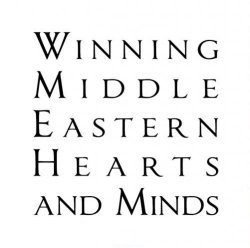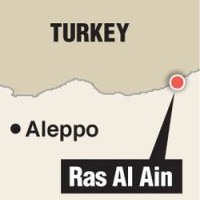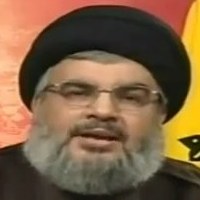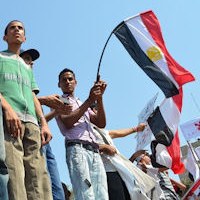Published: february 25, 2010; The Real Arab Stuff: Hussain Abdul-Hussain Explains it all to you.
by Barry Rubin,
Hussain Abdul-Hussain gets it. He’s one of the most interesting Arab journalists and he also writes in English. His latest article—published in the “Huffington Post”—entitled “Lonely Obama vs. Popular Iran” he points out what the most realistic people and more moderate rulers in the Arabic-speaking world are thinking.
He explains what I’ve been telling you but since he has “Abdul” in his name perhaps you’ll believe it when he says it.
Theme one: Popularity isn’t so important in the Middle East:
“A common perception is that under President Barack Obama, America’s image has improved, and perhaps its friends have increased. But such claims are unfounded, as the opposite proves to be true.”
“One would expect the charismatic Obama, with his hand extended to America’s friends and foes, to fare better than the confrontational George Bush, with his simplistic views on “either with us, or against us” and his lumping of nations — wholesale — in this or that axis of evil.”
“International relations, however, are about interests, not sweet talk. As Bush went out recruiting allies, and making enemies, Obama lost America’s friends while failing to win over enemies.”
Theme two: What is important is that allies believe you will support and protect them. Obama isn’t doing that:
Example A, Iraq:
“After losing more than 4,300 troops in battle and spending $700 billion (it says trillion but I assume that’s a typo) since 2003, America today cannot find a single politician or group that would express gratitude to Americans for ridding Iraq of its ruthless tyrant Saddam Hussein, and allowing these politicians to speak out freely.”
“On the contrary, shy of making their excellent backdoor ties with Washington known since they fear Obama will depart Iraq and never look back, Iraqi politicians started expressing dissatisfaction with the United States in public.”
Example B, Lebanon, before Obama took office, more than one-third of the entire population—most of them Sunni Muslims– demonstrated against Syrian occupation and demanding the disarmament of Iran’s proxy militia, Hezbollah. And the Druze leader Walid Jumblatt said on Al-Jazeera television “that he was proud to be part of America’s plan to spread democracy in the Middle East.” Now Jumblatt has practically gone over to Hizballah or, at least, is heavily hedging his bets because he fears Iran and Syria more than he has faith in Obama’s policy. And so:
“By the time Obama had made it to the White House, support of America’s allies in Lebanon waned since Obama was determined to appease their foes in Syria and Iran. Hariri and Jumblatt were forced to abandon their fight for Lebanon’s democracy and freedom as Hariri rushed to Damascus to ask his former enemies for forgiveness, while Jumblatt is still begging for audience with Syria’s dictator Bashar Assad.”
Example C, Iran:
“In Iran, for the first time since 1979, the people revolted against their autocratic regime and took to the streets shouting death to the nation’s Supreme Leader Ali Khaminei in what came to be known as the Green Revolution.”
“But Obama’s Washington was busy sending one letter of appeasement after another to Iran’s tyrants, and accordingly failed to take the side of the Green Revolution for democracy and freedom. When Obama did show support for the Green Movement, it was too little and too late.”
You can add in Israel here, and Jordan, Egypt, and Saudi Arabia; the United Arab Emirates and Kuwait; Oman and Bahrain; Morocco, Tunisia and Algeria; along with most of Lebanon and those Turks who don’t want Islamism.
Theme three: Iran helps its allies. Hence, Iran has more allies while the United States has fewer. Iran is going up; the United States is going down:
“Now compare America’s friends around the Middle East to Iran’s cronies, and you can immediately understand why Washington is in trouble, both diplomatically and on a popular level, while Iran is confident as it marches toward producing a nuclear weapon and expanding its influence across the Middle East.”
A good example of the ridiculous weakness of the U.S. response is this statement by State Department spokesman P. J. Crowley: “It is not our intent to have crippling sanctions that have…a significant impact on the Iranian people. Our actual intent is…to find ways to pressure the government while protecting the people.” Get it? Sanctions that don’t really damage the economy and that hardly anyone feels! And that’s what the White House is proposing before the Russians, Chinese, and Europeans start whittling it down to even less!
Iranian ally A, Hizballah (my preferred transliteration):
“Since 1981, Iran has been funding its Lebanese ally Hezbollah, never defaulting on any of its pledged payments. Hezbollah went from an embryonic group into a state within a state, boasting a membership of several thousands and maintaining a private army, schools, hospitals, orphanages, satellite TV and a number of other facilities that have won it the hearts of Lebanon’s Shiites, and have given Hezbollah an absolute command over them.”
Iranian ally B, Syria:
“Iran has maintained a flow of cash and political support toward Syria for a similar amount of time. Obama has been begging Syria to switch sides and abandon Iran. Judging by the mishaps that always seem to befall America’s friends with time, Syria does not seem likely to change, but is rather playing an Obama administration desperate for whatever it can claim as success in its foreign policy.”
As if to prove the point, immediately after a big American delegation visited Damascus to restore full relations and Secretary of State Hillary Clinton told Congress that U.S. policy is seeking to detach Syria from its alliance with Iran, President Mahmoud Ahmadinejad visited Syria and the two leaders made strong anti-American statements while pledging eternal partnership. Here’s the headline in the London-based Arabic newspaper al-Sharq al-Awsat: “Syria and Iran defy Clinton in show of unity.”
Iranian ally C, Iraqi insurgents:
“In Iraq, Iran does not only fund and train militias and violent groups, but they also fund electoral campaigns of Iraqi politicians, loyal media groups and political parties, thus expanding their influence over Iraq exponentially. Spending billions more than Iran in Iraq, America has seen its money spent to no or little effect.”
And here’s the bottom line:
“The comparison between Iran and Obama’s America is simple.”
“While Tehran never let down an ally, offering them consistent financial and political support, Washington’s support of its allies around the world has always been intermittent, due to changes with administrations and an ever swinging mood among American voters, pundits and analysts.”
“So while Iran has created a mini-Islamic republic in Lebanon, and is on its way to doing the same in Iraq, America has failed in keeping friends or maintaining influence both in Lebanon and in Iraq.”
“And while Tehran brutally suppressed a growing peaceful revolution for change inside Iran, Washington’s pacifism did not win any favors with the Iranian regime, or with its opponents in the Green Revolution.
“While Iran knows how to make friends, Obama’s America has become an expert in losing them.”
Yes! That’s what it’s all about. You know, it’s an interesting point. Obama and company says we should listen to Muslim and Arab voices.
Ok, but which ones? Not, as they are doing, to the apologists for radicalism and the purveyors of conventional nonsense (all that matters is the Arab-Israeli conflict, America should just make concessions, you need to understand how Islamism isn’t a threat). If you want to know what a dozen Arab governments think and fear–and Israelis, too–plus Muslims horrified by the extremist faction in the religion and liberal or moderate intellectuals this is the real stuff.
About the Authors,
Hussain Abdul-Hussain (Arabic, حسين عبد الحسين) is a journalist and expert on the Middle East. He currently works as a correspondent with the Kuwaiti daily Al Rai [1] (formerly Al-Rai-al-Aam) and lives in Washington DC. He is also a Visiting Fellow with Chatham House, London. Hussain Abdul-Hussain worked for the Congress-funded Arabic TV, Alhurra, as a news producer. Prior to joining Alhurra, he worked as a reporter and later as editor for Beirut’s The Daily Star. He was in Baghdad in April/May 2003 where he reported on the downfall of the Saddam Hussein regime. He has contributed articles to the New York Times, The Washington Post, The Christian Science Monitor, The International Herald Tribune, the USA Today and the Baltimore Sun and has appeared on CNN, MSNBC and the BBC. He often contributes editorials to Arabic daily Annahar of Lebanon, Egypt’s Al-Ahram Weekly Suplement as well as Al-Ahram’s Democracy Periodical, and Abu Dhabi’s The National. He appears regularly on Arabic satellite TV stations.
Barry Rubin is director of the Global Research in International Affairs (GLORIA) Center and editor of the Middle East Review of International Affairs (MERIA) Journal. His latest books are The Israel-Arab Reader (seventh edition), The Long War for Freedom: The Arab Struggle for Democracy in the Middle East (Wiley), and The Truth About Syria (Palgrave-Macmillan). His new edited books include Lebanon: Liberation, Conflict and Crisis; Guide to Islamist Movements; Conflict and Insurgency in the Middle East; and The Muslim Brotherhood.
Mazzeltov,
Crethi Plethi



 RSS
RSS











The real Arab Stuff #arab #us #israel #iran http://j.mp/aPO85z
[…] the original: The Real Arab Stuff Share and […]
RT @CrethiPlethi: The real Arab Stuff #arab #us #israel #iran http://j.mp/aPO85z
[…] The Real Arab Stuff […]